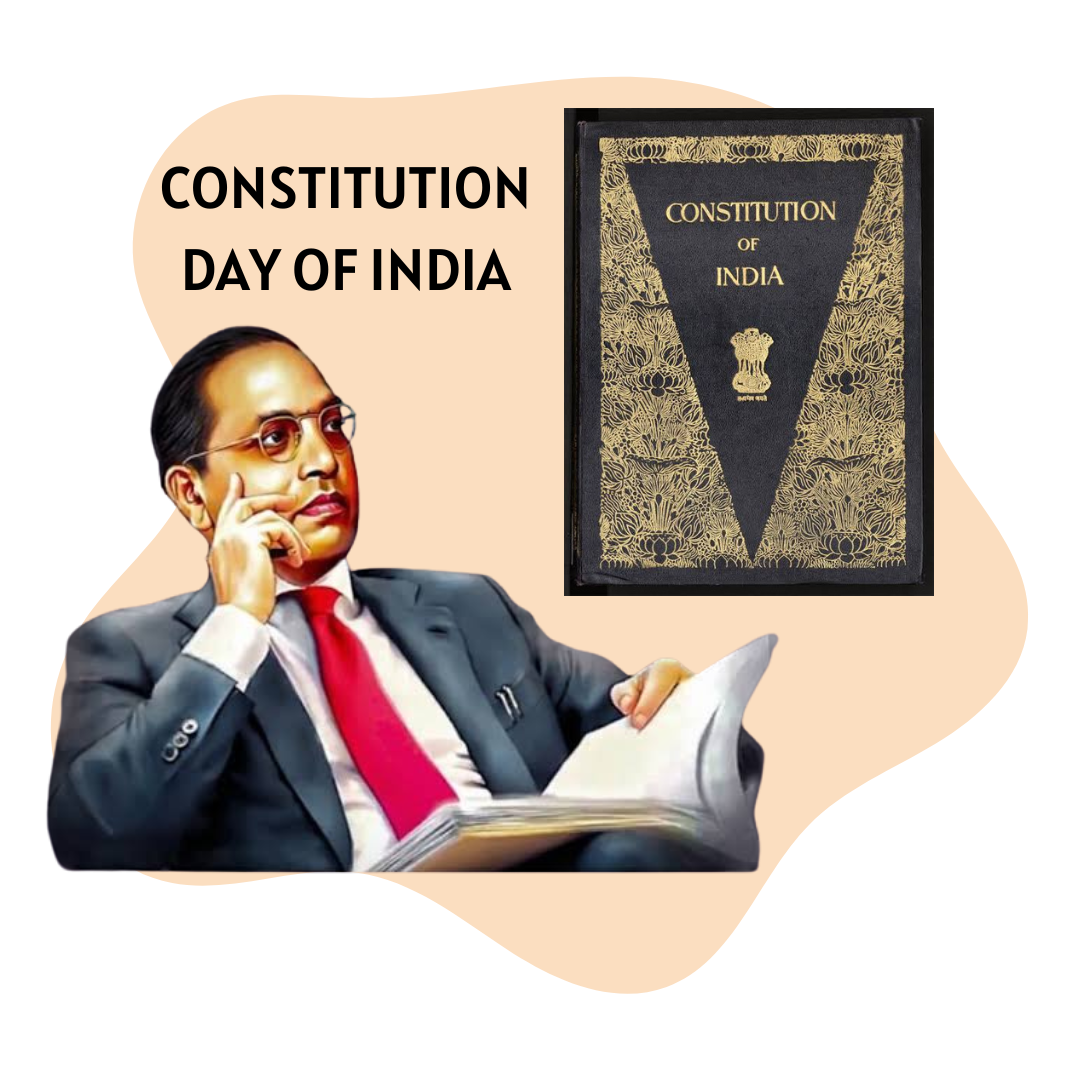Constitution Day, also known as National Law Day, is observed annually on November 26. It marks the historic adoption of the Indian Constitution by the Constituent Assembly on this day in 1949. The Constitution laid the foundation for India’s democratic system, guaranteeing the rights and freedoms of all citizens.
In 2025, Constitution Day serves as a reminder of the values that shape our nation—justice, liberty, equality, and fraternity. It’s a day to honor the efforts of those who framed the Constitution and to reflect on its continued importance.
Why Do We Observe Constitution Day?

Constitution Day is observed to commemorate the day India officially adopted its Constitution on November 26, 1949. While it came into effect on January 26, 1950 (celebrated as Republic Day), November 26 remains a crucial milestone in India’s democratic journey.
This day is also an opportunity to honor Dr. B.R. Ambedkar, who played a pivotal role in drafting the Constitution. His vision of justice and equality continues to guide the nation.
Importance of Constitution Day
Constitution Day holds significant importance for several reasons:
- Protecting Our Rights: It ensures justice, equality, and freedom for all citizens.
- Guiding the Government: The Constitution defines the structure of the government, outlining the roles of the executive, legislature, and judiciary.
- Strengthening National Unity: It unites a diverse nation under a single legal framework.
- Promoting Civic Awareness: It encourages citizens to understand and uphold their rights and responsibilities.
History of Constitution Day in India
The idea of celebrating Constitution Day was first proposed in 2015, during Dr. B.R. Ambedkar’s 125th birth anniversary. The goal was to honor his leadership and promote awareness of the Constitution.
The drafting of the Constitution took nearly three years, from December 9, 1946, to November 26, 1949. The final draft came into effect on January 26, 1950, when India officially became a republic.
Dr. B.R. Ambedkar – Father of the Indian Constitution
Dr. B.R. Ambedkar, the Chairman of the Drafting Committee, is celebrated as the Father of the Indian Constitution. His efforts ensured that the Constitution included fundamental rights, justice, equality, and provisions to protect marginalized communities.
Dr. Ambedkar’s profound understanding of law, economics, and social issues played a key role in shaping a democratic and inclusive Constitution. Constitution Day is a tribute to his legacy and vision for a just and equal India.
Why the Constitution Matters to India
The Indian Constitution is the backbone of India’s democratic system. Here’s why it is crucial:
- Forms the Basis of Democracy: It creates a balanced system of government with clearly defined roles for the executive, legislature, and judiciary.
- Safeguards Fundamental Rights: It guarantees essential freedoms, including the right to life, equality, and free speech.
- Clarifies Citizenship: It defines who is an Indian citizen and what rights and duties they hold.
- Supports Social Justice: It provides provisions for affirmative action to uplift marginalized communities.
- Ensures Rule of Law: It holds everyone, including the government, accountable to the law.
- The Supreme Law: The Constitution is the highest legal authority, guiding all other laws and actions.
- Flexible and Adaptable: The Constitution can be amended to address changing needs and challenges.
- Guides Policy and Governance: It provides a framework for creating laws and policies that foster social and economic development.
Fun Facts About the Indian Constitution
- Longest Written Constitution: The Indian Constitution is the longest in the world, with 448 articles, 25 parts, 12 schedules, and 104 amendments.
- A Blend of Federal and Unitary Features: It balances power between the central and state governments.
- Inspired by Other Nations: It drew concepts from various countries: Fundamental Rights from the U.S., Directive Principles from Ireland, and Liberty, Equality, and Fraternity from France.
- Fundamental Rights and Duties: While Fundamental Rights protect individual freedoms, the Constitution also encourages citizens to uphold the nation’s unity through Fundamental Duties.
- Original Copies Preserved: The original handwritten copies of the Constitution, in Hindi and English, are kept in helium-filled cases in the Library of Parliament.
- The Basic Structure Doctrine: This doctrine, established in 1973, ensures that essential features of the Constitution cannot be altered by amendments.
Additional Facts
- Emergency Provisions: The Constitution outlines conditions for declaring a state of emergency, granting the central government broad powers in times of war, internal disturbances, or financial instability.
- Government of India Act Influence: Many provisions were derived from the Government of India Act, 1935, which served as an initial legal framework for India’s governance.
- Special Provisions for States: Articles 370 and 371 provide unique provisions for the autonomy of Jammu and Kashmir and certain other states.
- Women’s Representation: The Constituent Assembly included 15 women members, who played a vital role in advocating for women’s rights.
- No Dual Citizenship: The Indian Constitution prohibits dual citizenship. Indian citizens cannot hold citizenship in another country.
- First Constitutional Amendment: The first amendment, passed in 1951, focused on land reforms and safeguarded certain laws from being challenged on the grounds of violating Fundamental Rights.
Key Takeaways
- Constitution Day is a celebration of India’s commitment to democracy and justice, and it’s a day to honor the efforts of Dr. B.R. Ambedkar.
- The Constitution continues to guide India’s government, safeguard citizens’ rights, and maintain national unity.
- Understanding the Constitution helps citizens appreciate their rights and responsibilities in a democratic society.
To Download Monthly Current Affairs PDF Click here
Click here to get a free demo
Discover all about CLAT Exam
